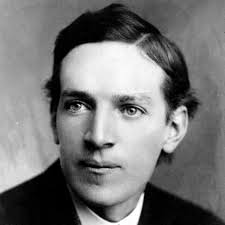The Jungle Page #24
The Jungle is a 1906 novel by the American journalist and novelist Upton Sinclair. Sinclair wrote the novel to portray the harsh conditions and exploited lives of immigrants in the United States in Chicago and similar industrialized cities.
To come back to the house again, it was the woman of the next family that had died. That was after they had been there nearly four years, and this woman had had twins regularly every year--and there had been more than you could count when they moved in. After she died the man would go to work all day and leave them to shift for themselves--the neighbors would help them now and then, for they would almost freeze to death. At the end there were three days that they were alone, before it was found out that the father was dead. He was a “floorsman” at Jones's, and a wounded steer had broken loose and mashed him against a pillar. Then the children had been taken away, and the company had sold the house that very same week to a party of emigrants. So this grim old women went on with her tale of horrors. How much of it was exaggeration--who could tell? It was only too plausible. There was that about consumption, for instance. They knew nothing about consumption whatever, except that it made people cough; and for two weeks they had been worrying about a coughing-spell of Antanas. It seemed to shake him all over, and it never stopped; you could see a red stain wherever he had spit upon the floor. And yet all these things were as nothing to what came a little later. They had begun to question the old lady as to why one family had been unable to pay, trying to show her by figures that it ought to have been possible; and Grandmother Majauszkiene had disputed their figures--“You say twelve dollars a month; but that does not include the interest.” Then they stared at her. “Interest!” they cried. “Interest on the money you still owe,” she answered. “But we don't have to pay any interest!” they exclaimed, three or four at once. “We only have to pay twelve dollars each month.” And for this she laughed at them. “You are like all the rest,” she said; “they trick you and eat you alive. They never sell the houses without interest. Get your deed, and see.” Then, with a horrible sinking of the heart, Teta Elzbieta unlocked her bureau and brought out the paper that had already caused them so many agonies. Now they sat round, scarcely breathing, while the old lady, who could read English, ran over it. “Yes,” she said, finally, “here it is, of course: 'With interest thereon monthly, at the rate of seven per cent per annum.'” And there followed a dead silence. “What does that mean?” asked Jurgis finally, almost in a whisper. “That means,” replied the other, “that you have to pay them seven dollars next month, as well as the twelve dollars.” Then again there was not a sound. It was sickening, like a nightmare, in which suddenly something gives way beneath you, and you feel yourself sinking, sinking, down into bottomless abysses. As if in a flash of lightning they saw themselves--victims of a relentless fate, cornered, trapped, in the grip of destruction. All the fair structure of their hopes came crashing about their ears.--And all the time the old woman was going on talking. They wished that she would be still; her voice sounded like the croaking of some dismal raven. Jurgis sat with his hands clenched and beads of perspiration on his forehead, and there was a great lump in Ona's throat, choking her. Then suddenly Teta Elzbieta broke the silence with a wail, and Marija began to wring her hands and sob, “Ai! Ai! Beda man!” All their outcry did them no good, of course. There sat Grandmother Majauszkiene, unrelenting, typifying fate. No, of course it was not fair, but then fairness had nothing to do with it. And of course they had not known it. They had not been intended to know it. But it was in the deed, and that was all that was necessary, as they would find when the time came. Somehow or other they got rid of their guest, and then they passed a night of lamentation. The children woke up and found out that something was wrong, and they wailed and would not be comforted. In the morning, of course, most of them had to go to work, the packing houses would not stop for their sorrows; but by seven o'clock Ona and her stepmother were standing at the door of the office of the agent. Yes, he told them, when he came, it was quite true that they would have to pay interest. And then Teta Elzbieta broke forth into protestations and reproaches, so that the people outside stopped and peered in at the window. The agent was as bland as ever. He was deeply pained, he said. He had not told them, simply because he had supposed they would understand that they had to pay interest upon their debt, as a matter of course. So they came away, and Ona went down to the yards, and at noontime saw Jurgis and told him. Jurgis took it stolidly--he had made up his mind to it by this time. It was part of fate; they would manage it somehow--he made his usual answer, “I will work harder.” It would upset their plans for a time; and it would perhaps be necessary for Ona to get work after all. Then Ona added that Teta Elzbieta had decided that little Stanislovas would have to work too. It was not fair to let Jurgis and her support the family--the family would have to help as it could. Previously Jurgis had scouted this idea, but now knit his brows and nodded his head slowly--yes, perhaps it would be best; they would all have to make some sacrifices now. So Ona set out that day to hunt for work; and at night Marija came home saying that she had met a girl named Jasaityte who had a friend that worked in one of the wrapping rooms in Brown's, and might get a place for Ona there; only the forelady was the kind that takes presents--it was no use for any one to ask her for a place unless at the same time they slipped a ten-dollar bill into her hand. Jurgis was not in the least surprised at this now--he merely asked what the wages of the place would be. So negotiations were opened, and after an interview Ona came home and reported that the forelady seemed to like her, and had said that, while she was not sure, she thought she might be able to put her at work sewing covers on hams, a job at which she would earn as much as eight or ten dollars a week. That was a bid, so Marija reported, after consulting her friend; and then there was an anxious conference at home. The work was done in one of the cellars, and Jurgis did not want Ona to work in such a place; but then it was easy work, and one could not have everything. So in the end Ona, with a ten-dollar bill burning a hole in her palm, had another interview with the forelady. Meantime Teta Elzbieta had taken Stanislovas to the priest and gotten a certificate to the effect that he was two years older than he was; and with it the little boy now sallied forth to make his fortune in the world. It chanced that Durham had just put in a wonderful new lard machine, and when the special policeman in front of the time station saw Stanislovas and his document, he smiled to himself and told him to go--“Czia! Czia!” pointing. And so Stanislovas went down a long stone corridor, and up a flight of stairs, which took him into a room lighted by electricity, with the new machines for filling lard cans at work in it. The lard was finished on the floor above, and it came in little jets, like beautiful, wriggling, snow-white snakes of unpleasant odor. There were several kinds and sizes of jets, and after a certain precise quantity had come out, each stopped automatically, and the wonderful machine made a turn, and took the can under another jet, and so on, until it was filled neatly to the brim, and pressed tightly, and smoothed off. To attend to all this and fill several hundred cans of lard per hour, there were necessary two human creatures, one of whom knew how to place an empty lard can on a certain spot every few seconds, and the other of whom knew how to take a full lard can off a certain spot every few seconds and set it upon a tray.
Translation
Translate and read this book in other languages:
Select another language:
- - Select -
- 简体中文 (Chinese - Simplified)
- 繁體中文 (Chinese - Traditional)
- Español (Spanish)
- Esperanto (Esperanto)
- 日本語 (Japanese)
- Português (Portuguese)
- Deutsch (German)
- العربية (Arabic)
- Français (French)
- Русский (Russian)
- ಕನ್ನಡ (Kannada)
- 한국어 (Korean)
- עברית (Hebrew)
- Gaeilge (Irish)
- Українська (Ukrainian)
- اردو (Urdu)
- Magyar (Hungarian)
- मानक हिन्दी (Hindi)
- Indonesia (Indonesian)
- Italiano (Italian)
- தமிழ் (Tamil)
- Türkçe (Turkish)
- తెలుగు (Telugu)
- ภาษาไทย (Thai)
- Tiếng Việt (Vietnamese)
- Čeština (Czech)
- Polski (Polish)
- Bahasa Indonesia (Indonesian)
- Românește (Romanian)
- Nederlands (Dutch)
- Ελληνικά (Greek)
- Latinum (Latin)
- Svenska (Swedish)
- Dansk (Danish)
- Suomi (Finnish)
- فارسی (Persian)
- ייִדיש (Yiddish)
- հայերեն (Armenian)
- Norsk (Norwegian)
- English (English)
Citation
Use the citation below to add this book to your bibliography:
Style:MLAChicagoAPA
"The Jungle Books." Literature.com. STANDS4 LLC, 2025. Web. 10 Mar. 2025. <https://www.literature.com/book/the_jungle_272>.








Discuss this The Jungle book with the community:
Report Comment
We're doing our best to make sure our content is useful, accurate and safe.
If by any chance you spot an inappropriate comment while navigating through our website please use this form to let us know, and we'll take care of it shortly.
Attachment
You need to be logged in to favorite.
Log In